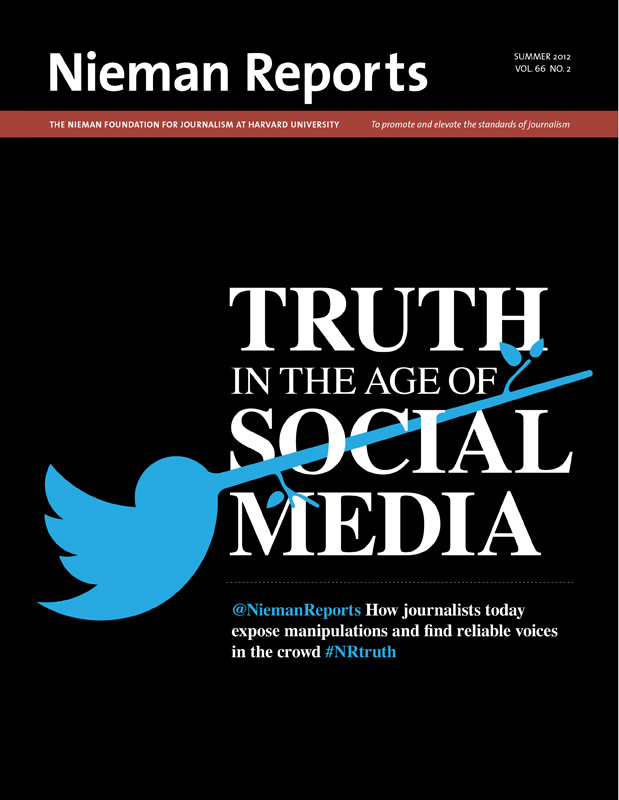I remember when I finally got serious about working with data. It was the third (or was it the fourth?) time I had taken a crash course in computer-assisted reporting. Reporters who have gone through this training know the drill: You learn how to use Excel in a day, ending with something called a "pivot table." My moment of resolve came when I was learning yet again how to make one of those tables. I was even using the same data as before: baseball players' salaries. I thought, "That's it. I'm sick of learning and forgetting. It's time for a change."
I pitched my bosses at the Milwaukee Journal Sentinel on attending the weeklong boot camp hosted by Investigative Reporters and Editors (IRE). I hoped to finally push past this pivot table business and learn how to draw useful information out of databases. I didn't want to be the database guy at our paper. We already had one. I just wanted to get past being a beginner.
By some accounts, at age 40, I was late to the data game. But I wasn't deterred. I figured that if I can't learn new skills, I probably am not long for this fast-changing business anyway. The IRE training in Missouri sealed the basics for me.
Now I was thinking in database speak, but I knew I had to use my skills or risk losing them. I didn't want to troll the Web for data. That was backward to me. One of the keys to getting the training wheels off was to find a story that required data skills. For me, it was like knowing that to get from here to there I had to learn to ride a bike so I did.
My breakthrough story grew out of my reporting on a gun shop that was one of the nation's top sellers of guns recovered in criminal investigations. The dealer had surrendered his license rather than have it be revoked. The shop's name changed and it was now being operated by a relative of the dealer. The switch wiped away all of the store's federal violations. I wanted to find out if other stores around the country had done the same thing.
Database skills were just what I needed. I obtained two databases, one of gun dealers whose licenses had been revoked and one of current gun dealers—one from the Web, the other through a public records request. Through my analysis, I found about 150 stores whose licenses had been revoked though they looked to still be in business. Two colleagues and I contacted these dealers. More than 50 admitted that the person whose license had been revoked remained close to the operation.
I brought my findings to the U.S. Bureau of Alcohol, Tobacco, Firearms and Explosives. The bureau had never done a similar analysis but officials were not surprised. They knew about the practice and even had a name for it—"phoenix rising from the ashes"—but were largely powerless to stop it.
"Wiped Clean," the series about gun dealers, was recognized with a George Polk Award. I am convinced that it would not have been possible without the database work. But the lesson was that data alone was not enough. The numbers had to be backed up by old-fashioned reporting.
After the series was published, I knew I had to keep using the skills or lose them. One tip I always pass on is to use Excel for everyday work. I use it for my source lists and story ideas and to keep track of my requests for public records. I also use it to make timelines as I begin any investigation. I open it every day.
As I continued to use Microsoft's database program, Access, I wanted to take another step and learn computer mapping. I got that opportunity in 2011 when my wife, Raquel Rutledge, was awarded a Nieman Fellowship. As an affiliate, I took a class at Harvard and learned to use mapping software to analyze data. For instance, I examined where homicides occurred and layered other data, including other crimes, home ownership, and income levels, on top of that. To round out my tool kit, I took a statistics class.
Back in the newsroom, I am putting my new tools to work. They complement the shoe-leather reporting that is still the best part of my job. While the data I come up with might account for only a couple paragraphs in a story, that information elevates my reporting beyond the merely anecdotal. That's why I'm determined this time not to let my knowledge fade away.
John Diedrich, a 2012 Nieman affiliate, is the federal courts reporter at the Milwaukee Journal Sentinel.
I pitched my bosses at the Milwaukee Journal Sentinel on attending the weeklong boot camp hosted by Investigative Reporters and Editors (IRE). I hoped to finally push past this pivot table business and learn how to draw useful information out of databases. I didn't want to be the database guy at our paper. We already had one. I just wanted to get past being a beginner.
By some accounts, at age 40, I was late to the data game. But I wasn't deterred. I figured that if I can't learn new skills, I probably am not long for this fast-changing business anyway. The IRE training in Missouri sealed the basics for me.
Now I was thinking in database speak, but I knew I had to use my skills or risk losing them. I didn't want to troll the Web for data. That was backward to me. One of the keys to getting the training wheels off was to find a story that required data skills. For me, it was like knowing that to get from here to there I had to learn to ride a bike so I did.
My breakthrough story grew out of my reporting on a gun shop that was one of the nation's top sellers of guns recovered in criminal investigations. The dealer had surrendered his license rather than have it be revoked. The shop's name changed and it was now being operated by a relative of the dealer. The switch wiped away all of the store's federal violations. I wanted to find out if other stores around the country had done the same thing.
Database skills were just what I needed. I obtained two databases, one of gun dealers whose licenses had been revoked and one of current gun dealers—one from the Web, the other through a public records request. Through my analysis, I found about 150 stores whose licenses had been revoked though they looked to still be in business. Two colleagues and I contacted these dealers. More than 50 admitted that the person whose license had been revoked remained close to the operation.
I brought my findings to the U.S. Bureau of Alcohol, Tobacco, Firearms and Explosives. The bureau had never done a similar analysis but officials were not surprised. They knew about the practice and even had a name for it—"phoenix rising from the ashes"—but were largely powerless to stop it.
"Wiped Clean," the series about gun dealers, was recognized with a George Polk Award. I am convinced that it would not have been possible without the database work. But the lesson was that data alone was not enough. The numbers had to be backed up by old-fashioned reporting.
After the series was published, I knew I had to keep using the skills or lose them. One tip I always pass on is to use Excel for everyday work. I use it for my source lists and story ideas and to keep track of my requests for public records. I also use it to make timelines as I begin any investigation. I open it every day.
As I continued to use Microsoft's database program, Access, I wanted to take another step and learn computer mapping. I got that opportunity in 2011 when my wife, Raquel Rutledge, was awarded a Nieman Fellowship. As an affiliate, I took a class at Harvard and learned to use mapping software to analyze data. For instance, I examined where homicides occurred and layered other data, including other crimes, home ownership, and income levels, on top of that. To round out my tool kit, I took a statistics class.
Back in the newsroom, I am putting my new tools to work. They complement the shoe-leather reporting that is still the best part of my job. While the data I come up with might account for only a couple paragraphs in a story, that information elevates my reporting beyond the merely anecdotal. That's why I'm determined this time not to let my knowledge fade away.
John Diedrich, a 2012 Nieman affiliate, is the federal courts reporter at the Milwaukee Journal Sentinel.




